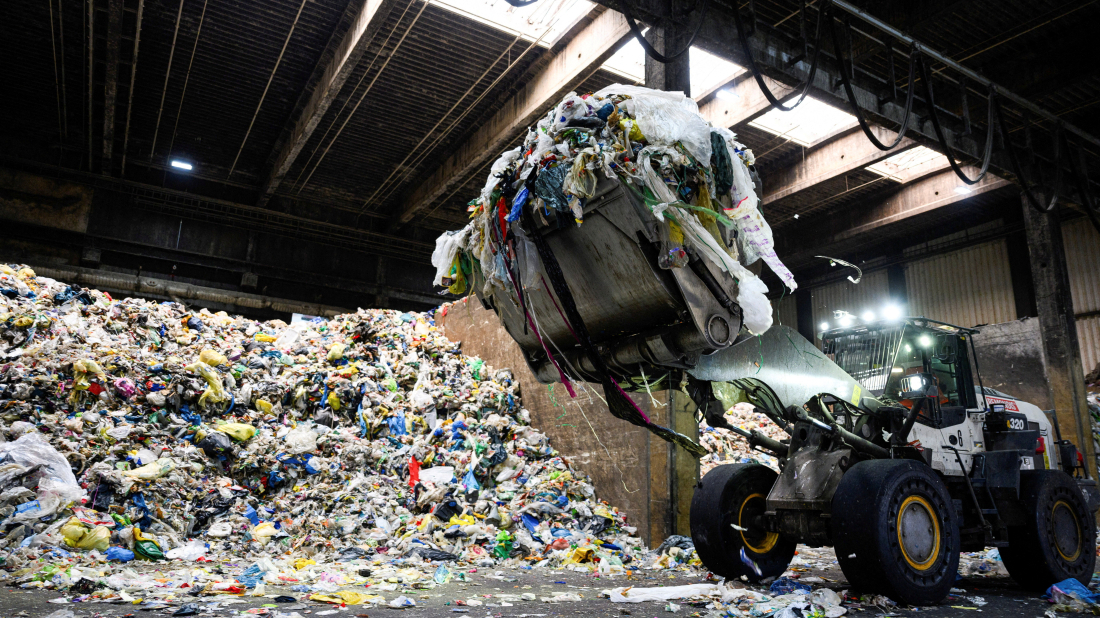Kazakhstan boosts Caspian Sea research with $2.2 million to tackle biodiversity loss
Kazakhstan says it's allocated $2.2 million to strengthen scientific monitoring of the Caspian Sea amid growing concern over falling water levels, bio...

Talks at the United Nations in Geneva to establish a global legally binding treaty on plastic pollution went into overtime on Thursday, with discussions adjourned to Friday.
Delegates faced sharp disagreements over how far the treaty should go, particularly regarding limits on plastic production and measures to address the full life cycle of plastics—from polymer production to waste disposal and impacts on health.
Luis Vayas Valdivieso, chair of the International Negotiating Committee (INC), which was set up by the UN Environment Agency (UNEA) in 2022, informed delegates that negotiations would continue after the scheduled meeting time ended.
States such as Panama, Kenya, Britain, and the European Union criticised the draft text, noting that key provisions had been removed, while oil-producing nations resisted restrictions on virgin plastics derived from petroleum, coal, and gas.
European Union Commissioner Jessika Roswall called a 'weak, static agreement' ineffective, stressing the need for a treaty that covers the full life cycle of plastics and evolves with science.
Panama labelled the draft text 'repulsive,' demanding a complete rewrite, while Saudi Arabia emphasised that agreement depends on clarifying the treaty’s scope.
Norwegian Minister Andreas Bjelland Eriksen urged compromise among all parties to create a balanced package, and some industry representatives, such as Ross Eisenberg of America’s Plastic Makers, expressed cautious optimism.
Meanwhile, Colombian lawmaker Juan Carlos Lozada cautioned that a weak deal could be worse than no deal at all.
Around 300 businesses, including Unilever, called for an ambitious treaty to harmonise global rules, warning that insufficient coordination could increase costs and fragmentation.
Italy said a fond farewell to the Winter Olympics on Sunday with an open-air ceremony in the ancient Verona Arena that celebrated art and sporting achievement at a Games lauded as a model for how to stage such events.
The United States and Iran will hold a new round of nuclear negotiations in Geneva on Thursday as part of renewed diplomatic efforts to reach a potential agreement, Oman’s Foreign Minister Badr Albusaidi announced on Sunday.
Further Iran-U.S. nuclear talks are scheduled in Geneva on Thursday (26 February) as diplomacy resumes over Tehran’s nuclear programme following earlier mediation efforts. But will the talks move Iran-U.S. negotiations closer to a deal, and what should be expected from the meeting?
Mexican authorities said on Sunday that Nemesio Oseguera Cervantes, known as El Mencho and head of the Jalisco New Generation Cartel (CJNG), was killed during a military operation in the western state of Jalisco.
Syria has secured a $50 million financing package from the World Bank to support transport infrastructure projects as the country advances its economic recovery efforts, Syrian media reported on Sunday.
The administration of U.S. President Donald Trump on Thursday (12 February) announced the repeal of a scientific finding that greenhouse gas emissions endanger human health, and eliminated federal tailpipe emissions standards for cars and trucks.
Tropical Cyclone Gezani has killed at least 31 people and left four others missing after tearing through eastern Madagascar, the government said on Wednesday, with the island nation’s second-largest city bearing the brunt of the destruction.
Rivers and reservoirs across Spain and Portugal were on the verge of overflowing on Wednesday as a new weather front pounded the Iberian peninsula, compounding damage from last week's Storm Kristin.
Morocco has evacuated more than 100,000 people from four provinces after heavy rainfall triggered flash floods across several northern regions, the Interior Ministry said on Wednesday.
Greenland registered its warmest January on record, sharpening concerns over how fast-rising Arctic temperatures are reshaping core parts of the island’s economy.
You can download the AnewZ application from Play Store and the App Store.

What is your opinion on this topic?
Leave the first comment